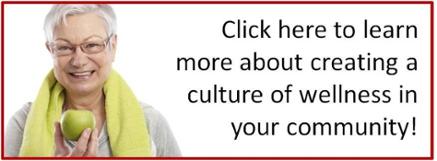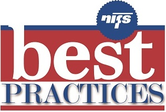 As we grow older, we experience changes in cognitive processes, which is a normal part of aging. But in some cases these changes are severe enough to interfere with the performance of activities of daily living (ADLs), signaling the beginning stages of cognitive decline or possibly dementia. In most cases, age-related decline occurs roughly around the age of 50, and it is estimated that by 2025, 7.1 million older adults will succumb to Alzheimer’s disease.
As we grow older, we experience changes in cognitive processes, which is a normal part of aging. But in some cases these changes are severe enough to interfere with the performance of activities of daily living (ADLs), signaling the beginning stages of cognitive decline or possibly dementia. In most cases, age-related decline occurs roughly around the age of 50, and it is estimated that by 2025, 7.1 million older adults will succumb to Alzheimer’s disease.
However, there are actions that you can take to promote your cognitive health. Likewise, research has shown that lifestyle choices can help delay or possibly prevent cognitive decline. Yet it must be stated that not all risks for developing dementia can be modified, such as age and genetics. More importantly, if you happen to be a wellness professional or care provider, it will be imperative for you to identify whether the person in question lives independently, needs assistance, or depends on others, as this will affect the individual’s wellness program.
Three Principles for Creating a Wellness Program
To create your senior wellness program, it is essential to have a strong foundation to build upon. Here are three principles to build from:
- Identify possible barriers to your wellness program.
- Develop strategies to implement your program.
- Consider the application of the strategies.
Case Study: Dan
Now let’s take this one step further and look at a hypothetical case.
Recently Dan has been experiencing a number of difficulties when it comes to his memory/recall. A few days ago, one of his friends noticed that Dan had difficulties following the flow of the conversations and had a tendency to forget what was said. Additionally, his son has been noticing over the past few months that Dan has been misplacing things and forgetting appointments. And on top of that, Dan has become aware of his recent lapses in memory. According to his neurologist, Dan is suffering from what is known as mild cognitive impairment (MCI).
With some background about Dan, we can begin the process of helping him navigate his barriers and begin to implement strategies that will best benefit him. With MCI, it is important to realize that Dan recognizes what is happening but needs help to navigate the MCI. Therefore, the following recommendations have been made for Dan which will require reevaluation every six months by his neurologist. There is no cure for MCI—but these strategies to navigate challenges will help improve Dan's quality of life.
- Regular exercise: Research has shown that it may delay cognitive decline or slow the rate of decline.
- Social activities: Interacting with others creates a mutual benefit including offsetting potential isolation and depression brought on by individual struggles with MCI.
- Cognitive stimulation: Taking part in creative pursuits that include problem-solving and reasoning help the brain remain active in important ways.
Also, research has shown that factors that aid in overall health may indeed play a significant role in delaying dementia. These strategies include
- Staying physically active
- Losing excess weight
- Performing cognitively stimulating activities
- Being social
- Getting enough sleep
- Eating healthy
Avoiding Falls
One more factor to be aware of is falling, and among older adults it’s the number-one cause of head injuries, which can lead to language, emotion, and thinking impairments. Thankfully, there are actions that you can take to help decrease the chance of falling, including increasing lower-body strength and balance, adjusting medications, and evaluating fall hazards.
***
All in all, it’s important to keep a positive attitude and embrace a culture of wellness. Through this perspective and these three principles, you are setting up yourself or those around you for success. More importantly, it will behoove you to continue researching cognitive decline to better equip yourself and those around you. Consider this information as only a summary, a beginning point for further development depending on your needs and goals.


 During my morning commute a few months ago, I switched on the radio and caught the tail end of a brief
During my morning commute a few months ago, I switched on the radio and caught the tail end of a brief 
 Most senior living communities have a variety of group fitness classes on their calendars focused on balance, muscular strength, flexibility, and cardiovascular health, and the clients we work with are no different. But we’ve landed on a program tied in with our group fitness classes for seniors that has become wildly popular with the residents. It turns out, it’s been a great way to draw more participants into the exercise program, too.
Most senior living communities have a variety of group fitness classes on their calendars focused on balance, muscular strength, flexibility, and cardiovascular health, and the clients we work with are no different. But we’ve landed on a program tied in with our group fitness classes for seniors that has become wildly popular with the residents. It turns out, it’s been a great way to draw more participants into the exercise program, too.
 Make no mistake about it, physical activity is important. Study after study
Make no mistake about it, physical activity is important. Study after study 
 Most people would agree that regular exercise is part of a healthy lifestyle, but how much of an impact does physical activity really have on one’s health and well-being?
Most people would agree that regular exercise is part of a healthy lifestyle, but how much of an impact does physical activity really have on one’s health and well-being?